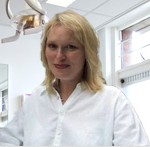Choosing the Best Diet for Whiter Teeth
Published:December 15th, 2011If you have recently had your teeth whitened you’re probably keen to prolong the effects for as long as possible, and one of ways you can do this is by watching your diet. Immediately after having your teeth whitened you should try to avoid all coloured foods for at least 24 hours as the process of whitening tends to dehydrate teeth making them more susceptible towards staining, and it takes a while for the teeth to fully hydrate.
Coffee, tea and red wine are all well-known for staining teeth, as are foods which contain large amount of spices which is unfortunate news for curry lovers. Berries are also quite bad for staining teeth, even though they are beneficial for health. Highly coloured condiments such as soy sauce can also be detrimental for a lovely white smile, as can cola. In general any food which would be hard to get out of a fabric is likely to have a staining effect on your teeth, but this could make your diet quite restrictive if you followed this principle religiously, and not only would it be boring but potentially unhealthy.
One of the reasons teeth stain is due to the tooth enamel being compromised, and ironically enough one of the worst things you can do your teeth immediately after eating is to brush them, even though this is very tempting especially if you have eaten something highly coloured. The best thing to do is to rinse your mouth out with plain tap water immediately after eating, but wait at least half an hour before brushing your teeth. This is because the process of eating causes your mouth to become more acidic, resulting in some of the minerals in your tooth enamel becoming ‘lost.’ Once the pH levels return to normal your teeth will remineralise, strengthening your tooth enamel and making it less susceptible to staining. Acidic fruits and fruit juices, although containing many vitamins can be pretty bad for your teeth as they can increase enamel erosion, making it much easier for highly coloured foods to stain.
Saliva is essential for healthy teeth, and choosing crunchy foods which help stimulate the production of saliva will also help keep your teeth strong, as it will wash away the acids produced during eating. Other tooth friendly foods include milk and cheese, as these not only contain high levels of calcium but will also not stain your teeth. Chewing sugar free gum can also help, and nowadays you can even buy chewing gum which promises to have a slight whitening effect.
Unfortunately your teeth will darken over time as this is inevitable, and following a teeth whitening diet will merely slow down the process. It’s important to remain realistic about this and to remember that you can top up your teeth whitening treatments every six months or so, as long as your dentist recommends it. Obviously it’s not practical to avoid all coloured foods, but when you do indulge try to eat them as quickly as possible and not nibble slowly over the course of the day so the effects will be minimised as much as possible.
About the author
 Alison, is a UK born and educated dental professional with over 25 years experience.
Alison, is a UK born and educated dental professional with over 25 years experience.





Write a Comment of Choosing the Best Diet for Whiter Teeth